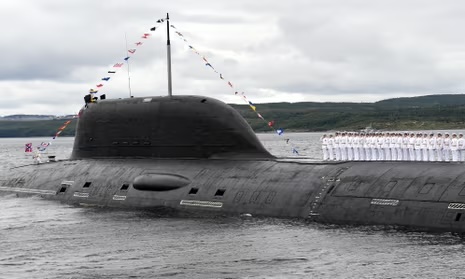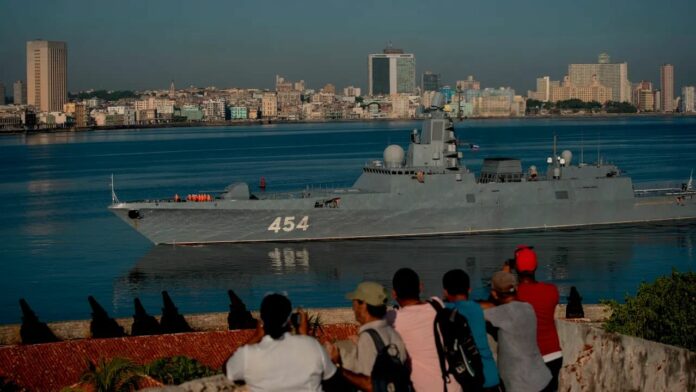Russia has strategically maneuvered nuclear-capable fleets into Cuban waters, echoing the tensions of the Cuban Missile Crisis. This maneuver includes vessels like the Admiral Gorshkov frigate and the Kazan nuclear-powered submarine, which are capable of carrying Zircon hypersonic missiles. While there is no confirmation these ships will be equipped with nuclear weapons during their visit, the mere presence of these capabilities so close to U.S. shores is a cause for concern. This movement is intended to provoke the United States and demonstrate Russia’s ability to project power near American borders.
Misallocation of U.S. Military Focus
America’s current foreign policy demonstrates a significant misallocation of military focus, undermining its strategic strength on the global stage. The ongoing support for Israel amidst the brutal conflict in Gaza highlights a distraction from more pressing geopolitical threats. As America’s attention remains fixated on the Middle East, it overlooks critical developments closer to home.
Silence from U.S. Military and Media
Despite the significance of this development, the U.S. military and media have been notably silent. This silence raises questions about America’s readiness and strategic priorities. During the Cuban Missile Crisis in 1962, the U.S. responded with immediate and intense focus, resulting in a high-stakes negotiation with the Soviet Union. Today, the lack of a robust response to Russia’s actions suggests a troubling complacency and potential vulnerability.

Misaligned Strategic Focus
Furthermore, while American politicians and media outlets might raise alarms, the U.S. Navy’s substantial presence halfway across the globe, particularly in the South China Sea, reveals a misaligned strategic focus. American naval forces project power and influence in China’s backyard, an area of rising tensions and complex geopolitical dynamics. This overextension leaves the U.S. with a diminished capacity to address threats emerging closer to its own territory.
Challenge to U.S. Dominance
The presence of Russian fleets in Cuba represents more than a historical echo; it signifies a direct challenge to U.S. dominance in its own hemisphere. This situation illustrates the broader issue of American overreach in its military campaigns. Engaging in multiple global conflicts dilutes America’s ability to respond effectively to threats near its borders.
Strategic Weakness from Overextension
The strategic distraction in the Middle East, combined with significant naval deployments in Asia, illustrates an overextended military force. The global projection of power, while traditionally a hallmark of American strength, now reveals signs of strategic weakness. The inability to prioritize and address immediate threats near U.S. shores could embolden adversaries and undermine national security.
Historical Lessons
America’s current foreign policy choices reflect a dangerous overreach, weakening its position on the world stage. History offers a cautionary tale: the Roman Empire, at the height of its power, extended its reach far beyond its core territories, spreading its military thin. This overextension left it vulnerable to invasions from closer enemies like the Visigoths, who eventually sacked Rome in 410 AD. The inability to prioritize and address immediate threats near its borders significantly influenced the Empire’s downfall.

